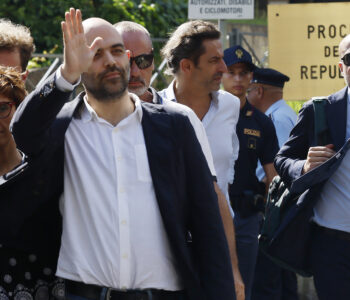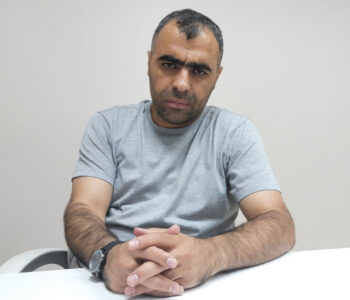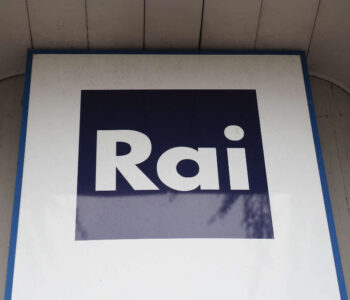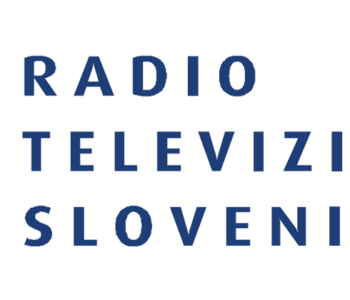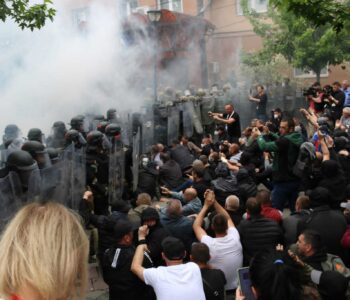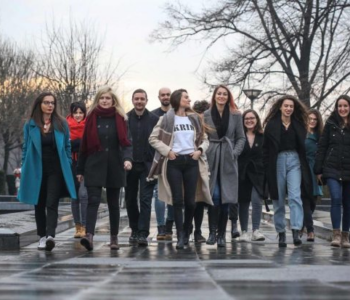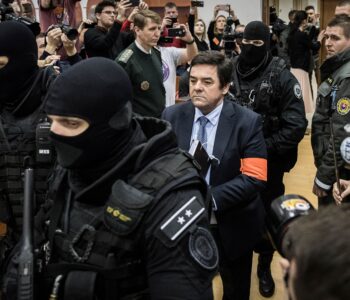 Library
Library
Poland: Media capture fears confirmed in new report examining…
Poland: Media capture fears confirmed in new report examining PKN Orlen takeover of Polska Press
Acquisition of country’s largest regional press publisher by state-controlled oil company has led to shrinking journalists freedoms, report finds.
The undersigned organisations of the Media Freedom Rapid Response (MFRR) consortium today warn that the findings of a new report assessing the impact of the takeover of regional news publisher Polska Press by Poland’s state-controlled oil company PKN Orlen illustrate a shocking example of media capture in the EU.
The report by the Helsinki Foundation for Human Rights in Poland concludes that the takeover and subsequent editorial purge at Polska Press by Orlen in December 2020 has negatively affected journalists freedoms and led to a shift in editorial lines favourable to the ruling Law and Justice Party (PiS) ahead of upcoming elections.
These findings, based on multiple interviews with current and former journalists and editors at former Polska Press titles, align closely with our own assessments. They also underscore how repeated warnings made by our organisations after the acquisition about the detrimental impact Orlen’s ownership would have on independent journalism in Poland have regrettably come to fruition.
Since Orlen took over management of Poland’s largest publisher of regional newspapers in December 2020, 14 of the 15 regional editors-in-chief stepped down under pressure, with their replacements coming from the state broadcaster or right-wing media titles supportive of PiS. According to the report, numerous other deputy editors and journalists also quit in protest, allowing new management to appoint new reporters often based on political considerations.
As a result, while experiences differ between different online and print titles, the report notes that these personnel changes have led to overall shift in editorial positions across Polska Press’s network to one more favourable to the ruling party. In some media, while coverage may not be supportive of the government, it at least ceased any critical commentary or reporting which could damage the party or its leaders.
Meanwhile, journalistic reporting on matters sensitive for the government – such as LGBTQ rights and migration – has been broadly diminished, while the positions and perspective of the political opposition have largely been marginalised within news coverage. At some titles, both soft and overt censorship by new editors and interference by outside political forces connected to the ruling coalition have markedly increased, with damaging effects on these media’s independence and impartiality.
Our organisations believe this takeover of Polska Press by Orlen is one of the clearest examples anywhere in the European Union in recent years of media capture in action. Through this acquisition by the state-controlled oil company headed by a close ally of the PiS leadership, the ruling party has significantly increased its ability to influence and control news and opinion across the country. This influence extends to 20 regional dailies, 120 weekly magazines and 500 online portals, and echoes the systematic takeover of regional media in Hungary under the Fidesz government.
The takeover of the country’s largest regional news publisher also draws clear parallels with political capture of the county’s public broadcaster Telewizja Polska (TVP) after PiS first came to power in 2015. While the lack of independence demonstrable at Polska Press titles cannot yet be compared to the party propaganda disseminated by TVP, it nonetheless significantly weakens media pluralism in Poland and undermines the right of citizens to receive unbiased information.
PiS has always claimed its drive for so-called ‘repolonisation’ of the media landscape is about ensuring media reflect Polish national interests rather than those of foreign-based publishers. The case of Polska Press is the clearest indication yet that, in reality, the principal aim of this policy is about engineering greater control over domestic media and ensuring continued support for the government’s own political interests.
Increasing instrumentalization of these media titles is of particular concern ahead of parliamentary elections in the autumn 2023, in which the opinion of voters in Poland’s significant rural population will likely be crucial for electoral success. If approved, the election observation mission to Poland recently requested by the European Parliament should scrutinise the news output of Polska Press titles during the election period as part of its overall assessment of the media environment.
Our organisations also believe this case offers a stark example of the need for the EU to pass a strong and effective Media Freedom Act (EMFA). Specifically, this takeover justifies the proposed establishment of a European Board, made up of representatives from national media regulators, which could scrutinise such acquisitions in the future and challenge them if it believes media pluralism or freedom of expression are at risk.
Had such a body been in place when this deal was approved by the country’s competition regulator UOKiK in February 2021, heightened international scrutiny could potentially have had an impact on the ultimate decision of the regulator or resulted in concrete guarantees and stronger safeguards against political interference.
The damage already done to journalistic freedoms by PKN Orlen is clear. We therefore also call on all international investors and pension funds which claim to follow ethical investment guidelines to carefully consider their relationship with the company and take its corrosive effect on media pluralism and democratic values into account.
Moving forward, our organisations will continue to follow this case closely and continue to warn about the takeover’s damaging implications for media freedom. We welcome the Helsinki Foundation for Human Rights’ report and will continue to closely monitor and document all threats to independent journalism in the build up to Poland’s parliamentary election.
This statement was coordinated by the Media Freedom Rapid Response (MFRR), a Europe-wide mechanism which tracks, monitors and responds to violations of press and media freedom in EU Member States and candidate countries.

